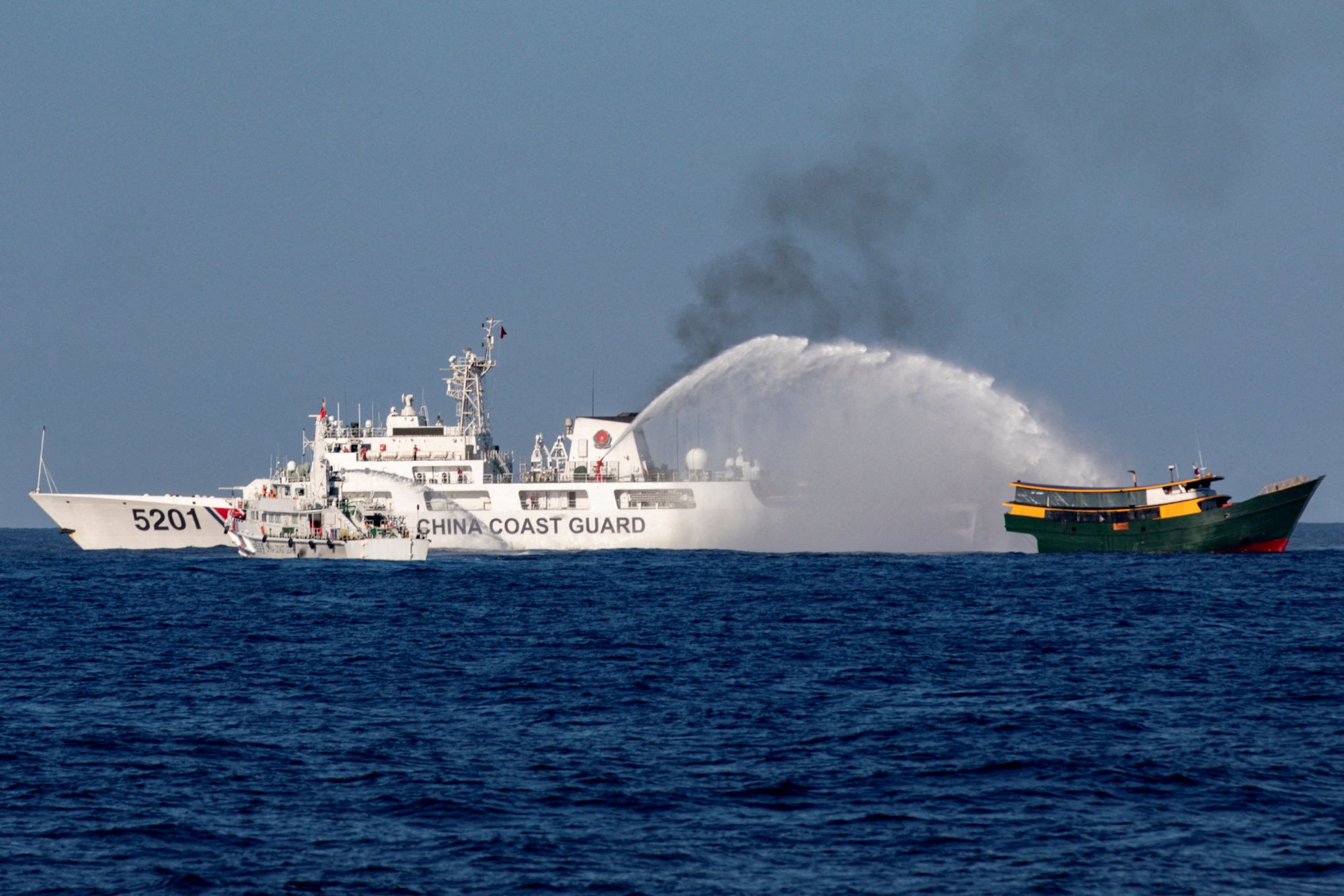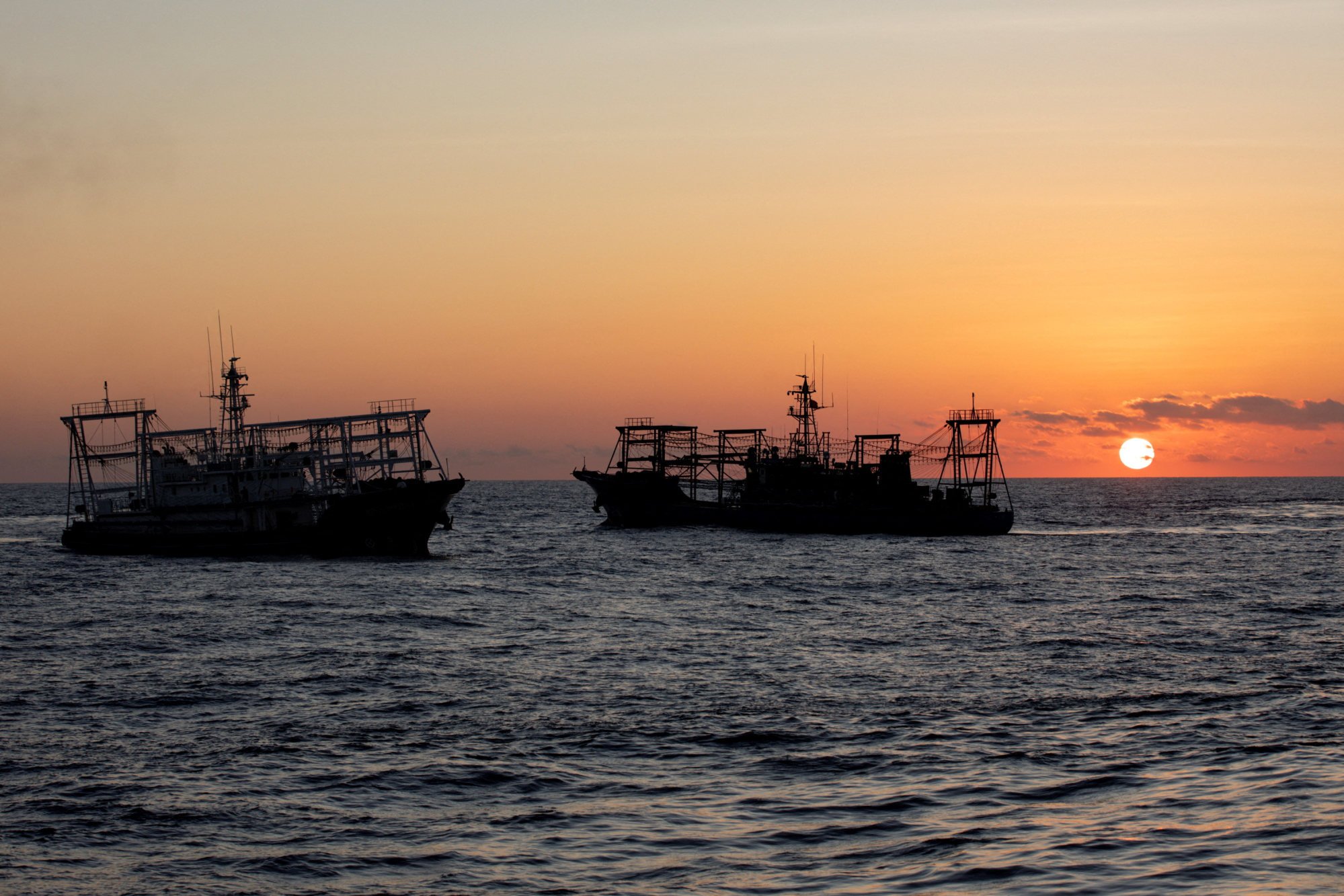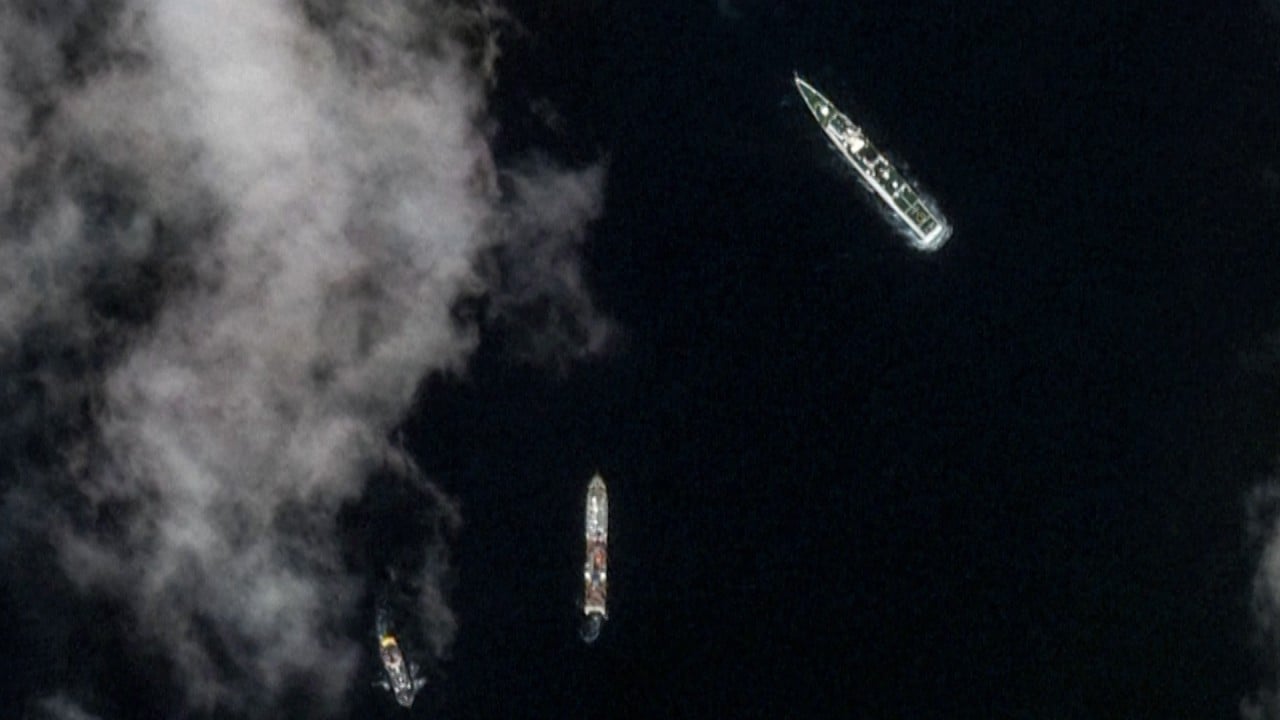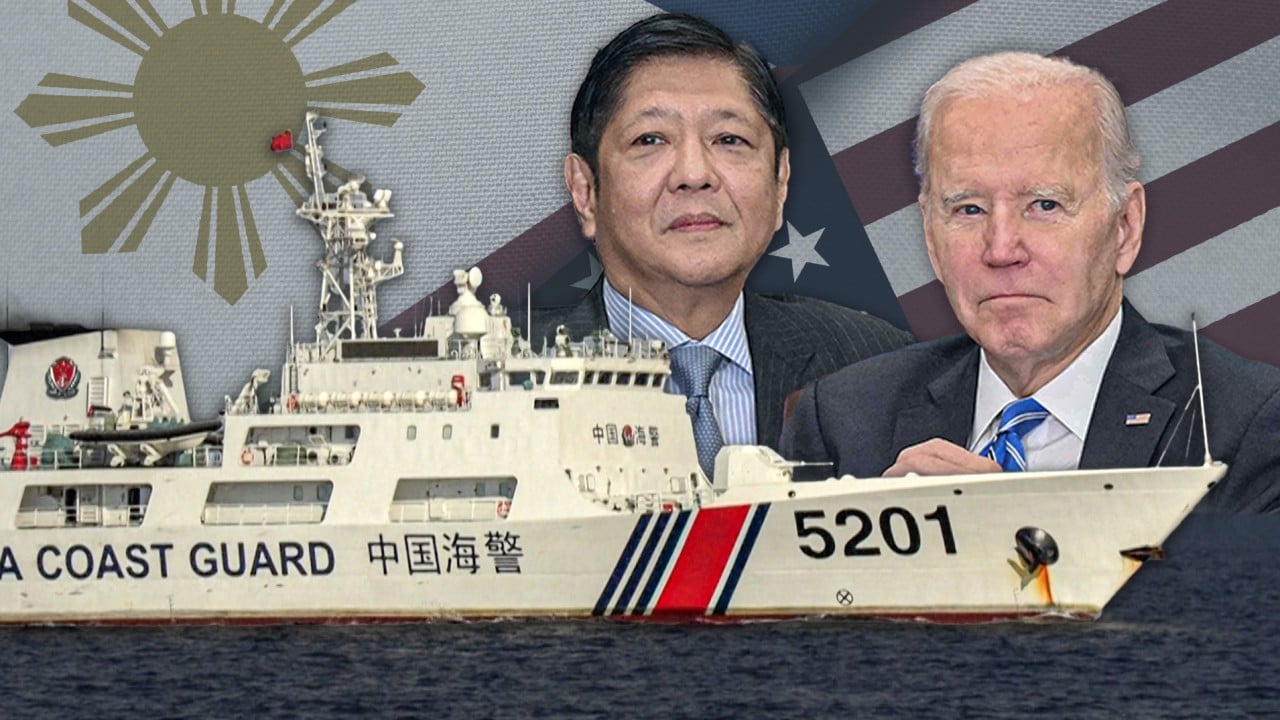“We discussed many [issues] during our security cluster meeting, not just the ground operation. But we can do it as a country using all the instruments available to us,” he told reporters, adding the agencies were exploring all available countermeasure options.
“We will be adjusting our operations, but we can’t divulge what those adjustments are,” he said.
Marcos Jnr says Philippines will not be ‘cowed into silence’ by China
Marcos Jnr says Philippines will not be ‘cowed into silence’ by China
President Marcos Jnr said in a statement on Thursday that Manila would implement unspecified “countermeasures” to China’s “aggressive and dangerous attacks” against Filipino troops and fishermen in the West Philippine Sea, as he directed his defence forces and concerned government agencies to counter Beijing’s actions.
The West Philippine Sea is the name Manila uses to refer to the South China Sea’s waters that lie within the Philippines’ exclusive economic zone.

Rommel Banlaoi, a national security analyst, told This Week in Asia on Sunday that he was alarmed with the current situation, given that both Manila and Beijing were increasing their military countermeasures.
“That will really raise the risk of armed conflict in the area,” said Banlaoi, a professor and counterterrorism analyst chief at the Philippine Institute for Peace, Violence and Terrorism Research.
Banlaoi said the Marcos Jnr administration should strengthen law enforcement and military capability to assert the country’s sovereign rights in West Philippine Sea, but he noted that would require “greater access to new maritime assets”.
“Meaning we need to buy new assets or get them from our allies … like from the United States, Japan and South Korea,” he said.
However, the key to resolving the conflict peacefully was through “negotiations and direct talks”, Banlaoi said.
“Any increase of military activities emanating from all parties – not just the Philippines, China and Vietnam – can only make it difficult to peacefully resolve the dispute,” he said, noting that the actions of both parties only contributed to the increase in tensions.
Vice-Admiral Alberto Carlos, a navy official tasked with looking after the country’s territory in the West Philippine Sea, said they were studying all scenarios that could happen if the situation escalated in the next mission.
“We are ready for what they are going to do. The troops stationed at Sierra Madre are prepared for the worst-case scenario,” he said. “We are studying all options. It’s unacceptable if we are going to stop the resupply mission.”
Military historian and defence analyst Jose Antonio Custodio said Manila should also consider mobilising the support of the Filipino people in asserting its interests and rights in the West Philippine Sea through support for its continuous presence in garrisons, fishing activities and educational programmes for public awareness.
“We have to increase activities with our US ally and other partners like Japan and Australia,” he said.

“Secretary Austin reaffirmed the ironclad US commitment to the Philippines following the People’s Republic of China Coast Guard and maritime militia’s dangerous obstruction of a lawful Philippine resupply mission to Second Thomas Shoal on March 23,” a readout coming from the US Department of Defence stated.
“He emphasised US support for the Philippines in defending its sovereign rights and jurisdiction, and reiterated that the US-Philippines Mutual Defence Treaty extends to both countries’ armed forces, public vessels and aircraft – including those of its coastguard – anywhere in the Pacific, to include the South China Sea,” it added.
Is the Philippines becoming a US ‘proxy’ against Beijing in the South China Sea?
Is the Philippines becoming a US ‘proxy’ against Beijing in the South China Sea?
Manila and Washington have an existing Mutual Defence Treaty (MDT) designed to enhance force capability and strengthen cooperation in the areas of maritime security, amphibious operations, live-fire training, urban operations, aviation operations, counterterrorism, humanitarian assistance and disaster relief.
Signed in 1951, the MDT calls on both countries to aid each other in times of aggression by an external power. In previous pronouncements, the Pentagon said it was prepared to assist Manila if it invoked the treaty amid threats from other nations.
On Sunday, Marcos Jnr issued an executive order for the government “to comprehensively tackle” cross-cutting issues that impact the Philippines’ national security, sovereignty and maritime jurisdiction over its extensive maritime zones.
“Despite efforts to promote stability and security in our maritime domain, the Philippines continues to confront a range of serious challenges that threaten not only the country’s territorial integrity, but also the peaceful existence of Filipinos, including their fundamental right to live in peace and freedom, free from fear of violence and threat,” the order stated.
The announcement came after the president said Manila would implement countermeasures against “illegal, coercive, aggressive, and dangerous attacks” by China’s coastguard and maritime militia.
Maritime security expert Ray Powell, a retired US Air Force officer, said the executive order appeared to signal a reorganisation and reprioritisation of resources with regard to activities in the WPS.
“This seems to be intended to coordinate oversight of WPS missions and align them with national priorities,” Powell told This Week in Asia.
Rear Admiral Armand Balilo, a spokesman for the Philippine Coast Guard, said they would scale up patrols in the contested waters.
“We will step up our operation not only in Ayungin Shoal, but in other areas. That’s part of our work,” Balilo said, referring to the Philippines’ name for the Second Thomas Shoal.
Duterte-Xi allegedly made ‘gentleman’s agreement’ for status quo in disputed sea
Duterte-Xi allegedly made ‘gentleman’s agreement’ for status quo in disputed sea
Roque reasoned that Beijing felt Manila had violated the unwritten agreement during its recent resupply missions, even though Beijing had no reason to believe that Marcos Jnr would maintain his predecessor’s pact.
Retired Supreme Court Associate Justice Antonio Carpio said Duterte had acted beyond his authority and surrendered the country’s rights if he did indeed enter into such an understanding with China.
“That ‘gentleman’s agreement’ was a disguised surrender of our EEZ rights over Ayungin Shoal, as it gave China veto power over our exclusive right to erect structures on Ayungin Shoal,” Carpio said on Thursday.



